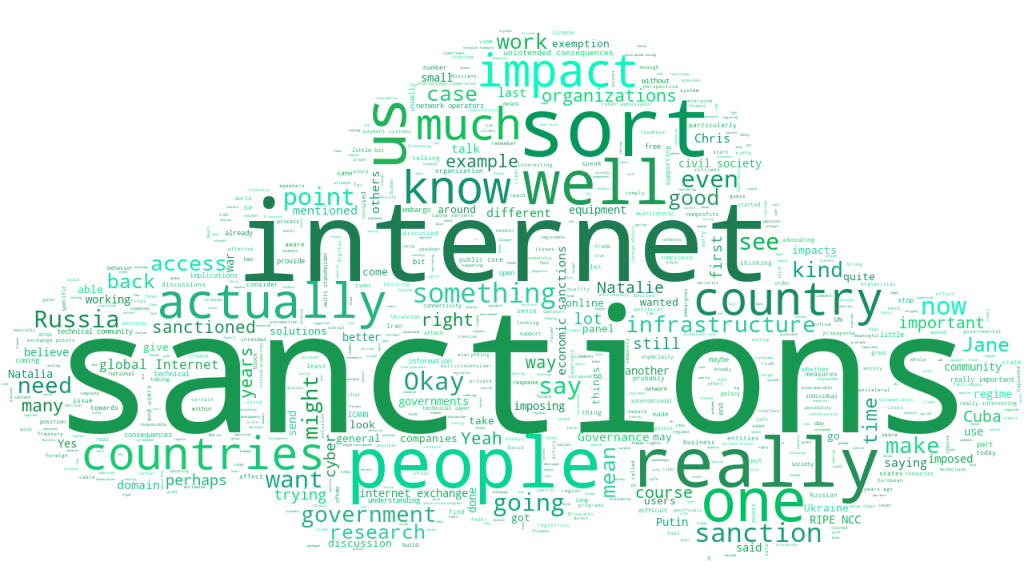Protecting a global internet in an age of economic sanctions
30 Nov 2022 13:50h - 15:20h
Event report
Economic sanctions have become a key instrument for achieving foreign policy goals. It is important to draw a distinction between cyber sanctions and economic sanctions. Cyber sanctions are imposed after malicious attacks are attributed to certain actors, as a legitimate state response. Governments often use economic sanctions in response to the behaviour of other governments, which is not in line with international commitments or international law. Although most sanctions are not internet-specific, it has been possible to trace their impact on the internet since the 1990s, as can be noticed from a timeline of internet sanctions, which is part of broader research conducted by Digital Medusa with the support of the RIPE NCC.
The significance of the impact of sanctions on the internet has increased in the past decade, in tandem with geopolitical conflicts. They may have unintended consequences on critical internet resources by impacting the activities of regional internet registries (RIRs), network operators, the domain name system, and domain registration, as well as equitable access to internet resources.
Sanctions impact not only the global and interoperable nature of the internet, but also the operation of small companies, which lack the resources to ensure compliance and could unknowingly violate the sanctions. These companies also face the burden of seeking licenses to be able to send equipment to certain countries. This could have a negative impact on projects related to fostering digital inclusion, for example. When it comes to larger companies, they may decide to halt their business operations in sanctioned countries, in order to avoid compliance risks. Internet users are, therefore, unable to access certain services.
Sanctions hurt populations the most. For example, in Cuba, the lack of access to Microsoft products has pushed the population towards Chinese providers. In the country, there is also a practice of sharing USB sticks among the population to distribute software and applications that they would otherwise not be able to access.
In order to tackle the side effects and unintended consequences of sanctions, several measures are envisioned, such as fostering multilateral and bilateral coordination among governments when they impose sanctions, putting in place exemptions and derogations, enhancing companies’ transparency with regard to compliance, and creating cross-industry coalitions to engage with other stakeholders. It is also important to raise awareness among policymakers, so they better understand how the internet works and who the important players are. A connection must be established between sanctions and principles, such as the protection of the public core of the internet, enshrined in the UN framework of responsible state behaviour in cyberspace. It is also important to understand the interplay between broader trade restrictions, affecting semiconductors, for example, on the internet. As next steps, mapping the internet value chain and unintended consequences of sanctions on technical layers and users is key.
By Marilia Maciel
The session in keywords
Related topics
Related event


